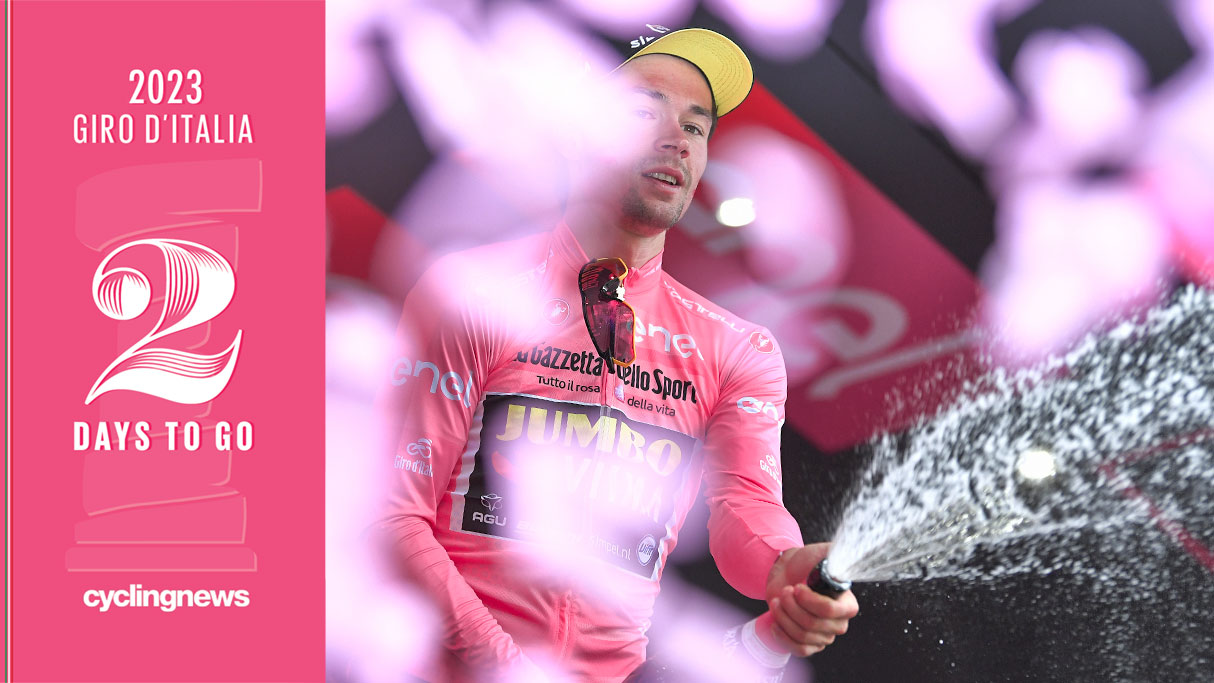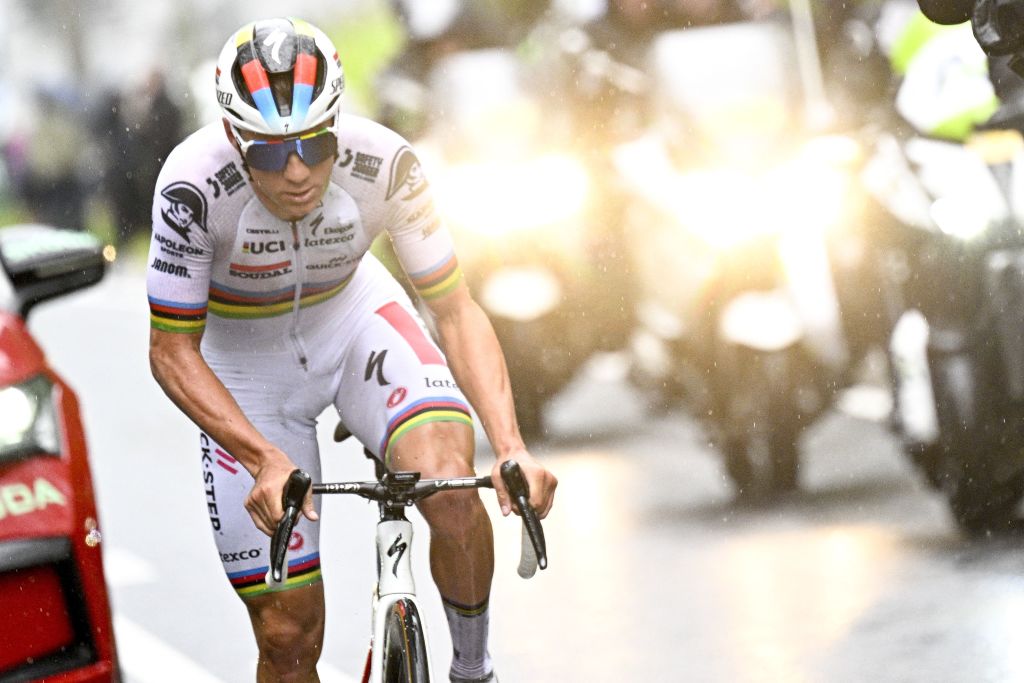
Exuberance versus experience, exciting versus expected, new versus old. It’s funny how Primož Roglič being 33 is considered old, but things move so quickly that the 23-year-old Remco Evenepoel is now seen as an established benchmark.
Evenepoel is certainly the standard for the incoming generation, and there’s no arguing that the world champion entirely merits the accolades he has earned. Already a Grand Tour winner at the Vuelta a España last year, he starts the 106th Giro d'Italia as the man to beat if you believe the bookmakers.
They’ve given him slightly better odds than his Slovenian rival, even though Roglič has won the Vuelta three times and would have pushed Evenepoel to the limit last year if he hadn’t crashed at the beginning of the final week.
Having already exited the Tour de France in similar circumstances, it wasn’t the best ending to Roglič’s 2022 season, but he seems to be fully recovered from the resulting surgical interventions needed for his lingering injuries. His form isn't exactly shabby, as two wins from two stage races this year clearly demonstrates. He may not be as spectacular as Evenepoel, but then again, outside of Tadej Pogačar and Mathieu van der Poel, who is?
Evenepoel, Roglic and a race of two halves - Giro d’Italia 2023 Preview
Giro d'Italia 2023 favourites
'I had to run into a wall and get faced by reality' – Remco Evenepoel and the lessons learned
Primoz Roglic: The Giro d'Italia has a special place in my heart
Giro d'Italia 2023 - The comprehensive team-by-team guide
I've been reading varying opinions as to which of these two favourites was most likely to triumph in Rome on May 28, but even when you apply firm logic, predictions are notoriously strife-inducing.
Up until the start of this week, I looked at the Giro d'Italia route and the 70km of time trials with the view that Remco, with his more natural aero position and the power he can develop on a TT machine, would take a second per kilometre from Primož.
This is despite Roglič having better technical resources and detailing at Jumbo-Visma compared to the Belgian squad, who we ought to remember are still relatively new to the process of supporting a full-on GC favourite.
Yet I still reckoned that somewhere between 70 to 90 seconds conceded wouldn’t be too much for Roglič to overcome in the mountainous final week. A bad or even average day in the high mountains on the Giro means losing five minutes or more – unlike at the Vuelta, where the climbs are usually shorter, and the gaps are generally a minute, or at most two.
Given Jumbo-Visma's domination of the early season, their obvious excellence in getting every rider ready for their role in supporting the chosen leader and the experience that Roglič has going into his twelfth Grand Tour, I was relatively sure that any advantage Evenepoel had would evaporate under the pressure applied once the long ascents were on the menu.
But then COVID-19 struck and suddenly plan A for the Dutch squad went out the window. You can always envisage that hiccups might happen, and you can have replacements for a few key roles, but losing Robert Gesink, Koen Bouwman and Tobias Foss is a big blow. For me, that changes everything in the tactical play that would have happened.

Over at Soudal-QuickStep, there's no such drama and now, remarkably, the squad to back up the world champion appears more solid than that of their direct rival. For a team that was traditionally all about Classics and shorter stage races, they now look like having the manpower to control most situations when the final week of racing starts.
Ilan Van Wilder and Louis Vervaeke have what it takes to go far into the last hour of the mountain stages and that means that Evenepoel can, if he has to, defend any lead much more easily. Once you enter the last week of any Grand Tour, it’s physically and mentally easier to be leading than trying to take back time. The Volta a Catalunya demonstrated that on a smaller scale, with Roglič frustrating Evenepoel just by following and outsprinting the youngster when he had to.
Potentially, Roglič may find allies in any offensives with the likes of João Almeida, Tao Geoghegan Hart and Hugh Carthy, as the outsiders squabble over the podium places and have good and less good days. But, essentially, barring accidents, injuries and catastrophes of the unseen kind, the two main favourites and their teams will be the ones who decide the final outcome.
There are question marks over Roglič's resilience when the third week of the Grand Tours features the hardest stages, but he surely has the experience and understanding to have that angle covered by now. You would certainly hope that was the case, but then there’s another issue – how come he always falls off at some point when everything else seems to be going just fine?
Then there's the fact that Evenepoel has only started two Grand Tours and finished just one. OK, he happened to win that, but even so, his level of knowledge is obviously much less, and Soudal-QuickStep have less experience in managing GC at three-week races too.
Evenepoel doesn't seem to crash as often and when he makes mistakes, he's not repeating them. The challenge for the world champion, however, is not only his direct rival. It’s also the expectations of Belgium and of the cycling world at large, because he has the recent momentum and his last results have been spectacular.
One thing no one has mentioned much is the weather, which is usually mixed at best and can be pretty horrific in the mountains. Warm and sunny ought to suit Roglič more, while being from Belgium, the miserable conditions could be to the advantage of Evenepoel – but if there’s a bit of everything, then who knows?
Should be a good one.
Subscribe to Cyclingnews for our full Giro d'Italia coverage.







